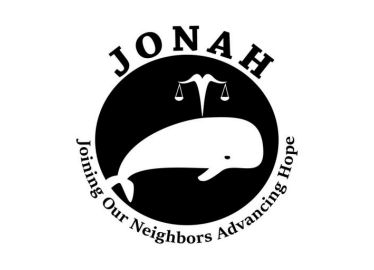by the JONAH Mental Health Task Force
After the shocking death by suicide of Sheriff Ron Cramer, many in our community had our eyes opened to the fact that mental illness, including suicidal ideation, can afflict anyone, even those whom we least expect. We cannot appreciate the amount or type of stress and trauma that can lead one to despair. Due to the lack of mental health professionals, and the lack of easy availability to the few that exist in Eau Claire and the Chippewa Valley, our members in the JONAH Mental Health Task Force have been learning about and connecting with programs that offer something more immediate that has proven to be effective: Peer Support Counseling by certified peer support specialists. We have several successful programs in our area of which we need to be aware: David and Alicia Carlson’s C.C. We Adapt; At the Roots; Certified Peer Specialist Larry Winter’s weekly peer support group; The Wellness Shack; Don Mowry’s Round Table Revival; Milkweed Alliance; and the Treatment Courts’ Peer Specialist Jeremy Wendtland (The First Congregational UCC JONAH Core Team recently invited speakers from these services to explain their programs, which can be viewed at https://youtu.be/sIO2gF9j300.). These programs need funding, training in trauma care, expansion, and replication, especially for our vulnerable population who have histories of trauma, but also for people working in high-stress jobs or living in high-stress environments.
We were encouraged to hear, then-acting sheriff, Cory Schalinske’s explanation at a press conference of steps that Eau Claire County’s law enforcement is taking for the mental health of their officers and staff. We are impressed that they have peer support teams, as well as annual mental health checks and access to health care professionals. In addition, the department is working in partnership with the Dept. of Human Services, using a full-time DHS Liaison to work with “our front-line staff to provide mental health resources and guidance directly to those we are called to.” This is a great step forward. Having a peer support specialist trained in trauma-informed care in this position would be greatly impactful. Law enforcement’s need for more mental health support is a reflection of the greater need for this support in the community.
One of the peer support providers, David Carlson, owner of C.C. We Adapt, explains, “The difference, however, is community members with mental health and addiction challenges don’t have the support networks and stability that law enforcement does. Trauma-informed care should be the baseline to address the mental health crisis in our community, and it should be led by highly-trained community agencies. The individuals best suited to provide this level of care are those with similar backgrounds and experiences to the populations they serve, whose occupation is that of peer support, autonomous from government departments and agencies, and holding the welfare of their peers as their top priority.” We agree and will do what we can to inform the public of the need for these programs and the funding for them.

